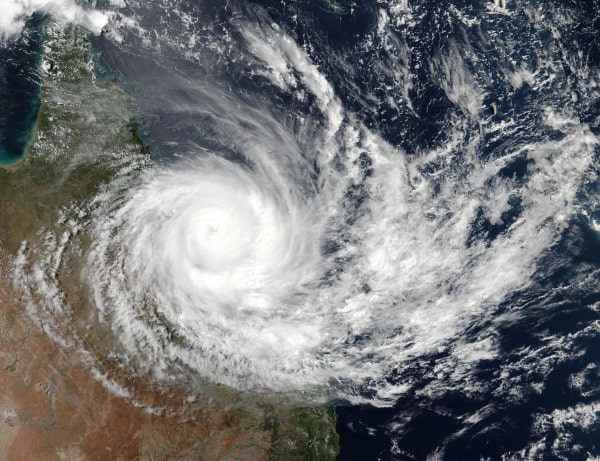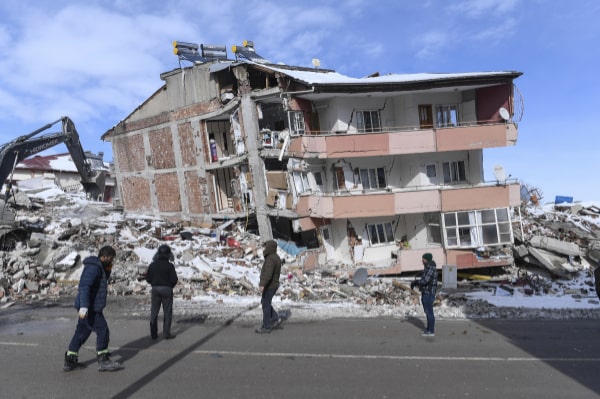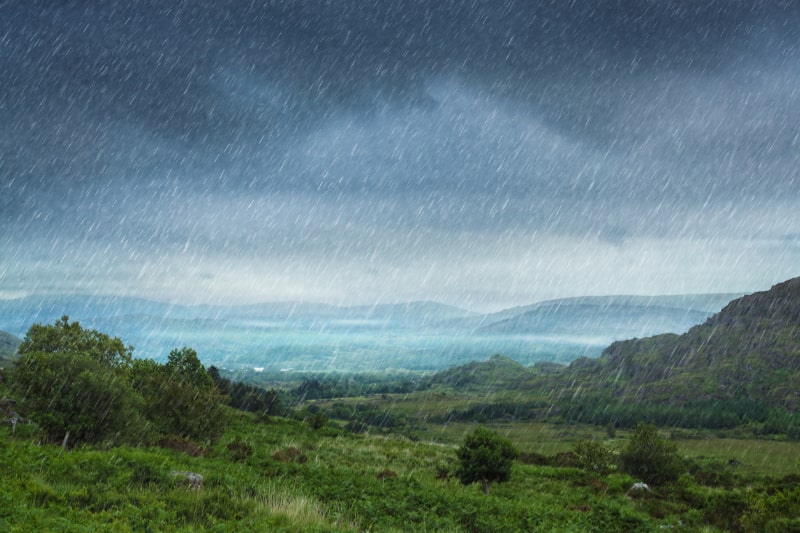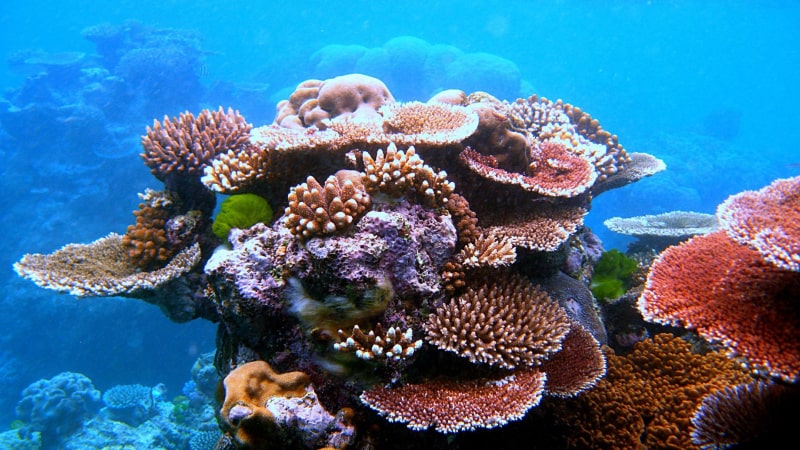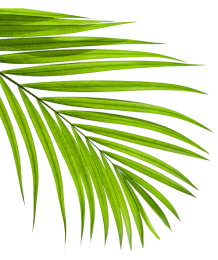
Hazard & Risk Factors in Andaman Trip
While Andaman & Nicobar Islands offer stunning natural beauty and a variety of attractions, there are certain hazards and risks that visitors should be aware of. Here are some hazards to consider when visiting Andaman:
PERSONAL SECURITY: The Andaman Islands are known for their political stability and low crime rate, making it a relatively safe destination for travelers. However, it is still important to take basic precautions to ensure your personal safety and protect your belongings. Here are some tips to enhance your personal security in the Andaman Islands:
Keep your belongings secure: Keep your valuables, such as passports, wallets, and electronic devices, secure at all times. Use hotel safes or lockers to store important documents and expensive items.
Stay vigilant in crowded areas: Like any popular tourist destination, crowded areas can be a target for pickpockets. Stay aware of your surroundings and keep an eye on your belongings, especially in crowded markets, transportation hubs, and tourist sites.
Use reliable transportation: Opt for registered taxis, reputable car rental services, or official transportation options recommended by your accommodation. Avoid hitchhiking or accepting rides from strangers.
Stay in well-lit areas at night: When exploring the islands at night, stick to well-lit and busy areas. Avoid walking alone in secluded or poorly lit areas.
Research your accommodation: Prior to booking your accommodation, read reviews and choose reputable hotels or guesthouses with good security measures. Check if they have 24-hour reception or security personnel.
Be cautious with strangers: While the majority of locals in Andaman are friendly and welcoming, exercise caution when interacting with strangers. Avoid sharing personal information or accepting invitations from unknown individuals.
Emergency contact information: Save important phone numbers, including the local police, embassy or consulate, and your hotel’s emergency contact, in case you need assistance.
Remember, while the Andaman Islands are generally safe, it is always prudent to take precautions and be aware of your surroundings. By staying vigilant and following basic safety measures, you can enjoy a secure and enjoyable travel experience in the Andaman
MARINE ANIMALS IN ANDAMAN: The waters surrounding Andaman & Nicobar Islands are home to various marine creatures, some of which can pose risks to humans. These include Shark, jellyfish, sea snakes, stonefish, and saltwater crocodiles. It is important to be cautious and avoid direct contact with these animals.
SHARKS: Sharks are occasionally found in the waters surrounding the Andaman Islands, and while the chances of encountering them are minimal, it’s important to be aware of their presence and take precautions. When visiting Andaman, it is advisable to avoid swimming or diving alone, as sharks are more likely to be deterred by larger groups of people. It is also crucial not to enter the water with open wounds, as the scent of blood can attract sharks. Staying informed about shark sightings and heeding any advisories or warnings issued by local authorities is essential. Additionally, it is important to respect marine life and refrain from activities that could attract sharks, such as fishing or feeding marine animals. By following these guidelines and respecting the natural environment, visitors can enjoy the stunning waters of Andaman while minimizing any potential risks associated with sharks.
SALTWATER CROCODILES: Saltwater crocodiles are a significant hazard in the Andaman Islands, posing a threat to public safety. These large and powerful predators can reach lengths of up to 20 feet and weigh over 2,000 pounds. They are skilled swimmers and are known to ambush their prey from behind, capable of dragging a human underwater.
To reduce the risk of crocodile attacks in the Andaman Islands, consider the following safety measures:
- Avoid swimming alone: Always swim in groups as crocodiles are more likely to target solitary individuals.
- Avoid swimming at night: Crocodiles are more active during nighttime hours, so it’s best to refrain from swimming during this time.
- Stay away from areas with fish or bait: Crocodiles are attracted to areas with abundant food sources, so avoid swimming in such areas.
- Avoid swimming in murky water: Crocodiles have reduced visibility in murky water, increasing the chances of an attack.
- Refrain from bleeding in the water: Crocodiles have a heightened sense of smell and can detect blood from a distance, which may attract them.
- Remain calm when encountering a crocodile: Panicking and making sudden movements can provoke an attack. Stay calm and slowly move away from the crocodile.
- Fight back if attacked: If a crocodile attacks, aim for its sensitive areas, such as the eyes, nose, or mouth. Stay away from its jaws and attempt to free yourself.
If you are bitten by a saltwater crocodile, seek immediate medical attention as these bites can be severe and lead to serious complications.
For further information on safety in the Andaman Islands, consult the Andaman and Nicobar Tourism Department, explore resources from National Geographic, or consider visiting The Crocodile Trust, a non-profit organization dedicated to crocodile conservation and education.
By being aware of these potentially harmful marine animals and following the recommended precautions, visitors can reduce the risk of encountering any dangerous situations and enjoy their time in Andaman safely.
CORAL REEFS: Coral reefs in Andaman are delicate ecosystems that require protection. To ensure your safety and preserve the reefs, follow these guidelines: Do not step on or touch the corals, as they are easily damaged and take a long time to recover. Some corals have sharp edges that can cause cuts or injuries, so it is crucial to avoid direct contact. When snorkeling or diving, maintain a safe distance from the corals to prevent accidental damage. Be mindful of your fins or equipment to avoid unintentional contact with the reefs. Stay informed about responsible diving and snorkeling practices and follow the guidance of trained instructors or guides. By respecting and preserving the coral reefs, you can contribute to their conservation and enjoy their beauty for generations to come.
WEATHER HAZARD IN ANDAMAN: Weather hazards in the Andaman Islands can be influenced by the tropical climate of the region. While the islands generally enjoy pleasant weather throughout the year, there are certain weather-related hazards to be aware of:
TSUNAMIS: The Andaman Islands are located in a seismically active zone, and there is a risk of tsunamis. These large, powerful ocean waves can be triggered by undersea earthquakes or other seismic activities. It is essential to be aware of tsunami warnings and follow the instructions provided by local authorities. Familiarize yourself with evacuation routes and designated safe areas in case of a tsunami. If you are near the coast and feel strong tremors or receive a tsunami warning, immediately move to higher ground or an elevated building. Do not delay or wait for confirmation. Stay tuned to local news and weather updates for the latest information. Being prepared and responding promptly to tsunami warnings can help ensure your safety in the event of a tsunami.
EARTHQUAKE: The Andaman Islands are located in a seismically active region, making them prone to earthquakes. While the frequency and intensity of earthquakes in the area can vary, local authorities have implemented safety measures to address this hazard. Travelers should stay informed about the current seismic activity, follow any guidelines or advisories provided by authorities, and be prepared to take appropriate action in the event of an earthquake. It is recommended to familiarize yourself with evacuation routes and emergency procedures, and to prioritize personal safety by seeking shelter in sturdy structures or open areas away from potential hazards during an earthquake.
MONSOON SEASON: The monsoon season in Andaman typically takes place from May to September, characterized by heavy rainfall and rough seas. During this time, it is important to be aware of the weather conditions and exercise caution when engaging in water activities. Swimming in the sea may not be safe or accessible due to strong currents and unpredictable weather patterns. It is recommended to stay updated on the weather forecast and pay attention to any warnings or advisories issued by local authorities. Plan your activities accordingly and be prepared for potential changes or cancellations due to adverse weather conditions. Instead of swimming in the sea, you can explore alternative indoor activities, visit museums, or indulge in local cuisine during the monsoon season. Prioritize your safety and follow the guidance provided by local experts to have a pleasant and secure experience in Andaman.
CYCLONES: The Andaman and Nicobar Islands are occasionally affected by cyclones, especially during the months of October to December. Cyclones bring strong winds, heavy rains, and storm surges, posing a significant hazard. It is important to stay updated on weather reports and follow evacuation instructions if necessary.
SUNBURN AND HEAT-RELATED ILLNESS: The tropical climate in Andaman can be hot and humid, posing risks of sunburn and heat-related illnesses. Protect yourself by wearing sunscreen with a high SPF, a hat, and sunglasses to shield from the sun’s harmful rays. Stay hydrated and seek shade or air-conditioned areas to prevent heat exhaustion. If you experience symptoms like dizziness or weakness, move to a cooler place and drink fluids. These precautions will help minimize the risk of sunburn and heat-related illnesses, allowing you to enjoy your time in Andaman comfortably and safely.
SEA CONDITIONS: To stay safe in Andaman’s waters, it is important to be aware of the presence of strong ocean currents. Swim only in designated safe zones and follow the instructions provided by lifeguards or authorities. These areas are carefully assessed to minimize the risk of strong currents. If there are signs or flags indicating safe zones, make sure to pay attention and swim within those boundaries. It is also advisable to swim with a companion and keep an eye on each other in the water. Assess the conditions before entering the water and avoid swimming if the sea appears rough or turbulent. If you find yourself caught in a strong current, stay calm, swim parallel to the shore, and conserve your energy. Supervise children closely and never leave them unattended near the water. By being cautious and following these guidelines, you can enjoy the beaches of Andaman while minimizing the risks associated with strong currents.
MOSQUITOES AND MOSQUITO-BORNE DISEASES: Andaman, like other tropical destinations, is prone to mosquitoes and the risk of mosquito-borne diseases. To protect yourself, it is crucial to take precautions against mosquito bites. Apply mosquito repellent containing DEET or other recommended ingredients to exposed skin, especially during dawn and dusk when mosquitoes are most active. Wear long-sleeved clothing and consider staying in accommodations with screens or air conditioning to create a mosquito-free environment. Mosquitoes breed in stagnant water, so avoid areas with standing water and ensure proper drainage in your surroundings. Stay informed about the current situation of mosquito-borne diseases in Andaman and follow any advisories or precautions provided by local health authorities. If you experience symptoms such as high fever, headache, muscle pain, or rash after your visit, seek medical attention and inform healthcare providers about your travel history. By being proactive and taking preventive measures, you can minimize the risk of mosquito bites and enjoy a safer stay in Andaman.
RESTRICTED AREAS: Certain parts of Andaman & Nicobar Islands, especially areas inhabited by indigenous tribes, are designated as restricted or off-limits to visitors. It is crucial to respect these restrictions for the well-being and preservation of the tribes and their cultural heritage. Do not attempt to enter restricted or tribal areas without proper permission from the relevant authorities. These restrictions are in place to protect the tribes’ way of life and maintain their privacy and autonomy. By respecting these regulations, you contribute to the preservation of their culture and ensure a harmonious relationship between visitors and the indigenous communities. It is important to prioritize cultural sensitivity and follow all guidelines and regulations set forth by the local authorities when visiting Andaman & Nicobar Islands.
By being aware of these hazards and taking necessary precautions, visitors can have a safe and enjoyable experience in Andaman & Nicobar Islands. Stay informed, follow local guidelines, and prioritize your safety and well-being during your visit.
TREKKING HAZARD IN ANDAMAN WILDERNESS
When trekking in the wilderness of the Andaman Islands, there are several hazards that one should be aware of and prepared for. Here are some potential trekking hazards in the Andaman wilderness:
- Dense Vegetation: The Andaman Islands are known for their lush forests and dense vegetation. While this adds to the beauty of the surroundings, it can also make navigation challenging. Be prepared to encounter thick foliage, overgrown trails, and the need to bushwhack through certain areas.
- Slippery Surfaces: Due to the tropical climate and occasional rainfall, trails in the Andaman wilderness can become slippery, especially in hilly or rocky terrains. It is important to wear appropriate footwear with good traction and be cautious while traversing such surfaces to prevent slips and falls.
- Wildlife Encounters: The Andaman Islands are home to a variety of wildlife, including snakes, insects, and other small animals. While wildlife encounters are generally rare, it is important to be cautious and maintain a safe distance. Learn about the local wildlife, follow guidelines provided by experienced guides, and avoid touching or provoking any animals you encounter.
- Extreme Weather: The Andaman Islands experience a tropical climate, which means that weather conditions can change rapidly. Heavy rains, thunderstorms, and high temperatures are common. Monitor weather forecasts before your trek and be prepared with appropriate clothing, rain gear, and sun protection.
- Limited Infrastructure: In remote areas of the Andaman wilderness, facilities such as restrooms, medical aid, or food outlets may be scarce or nonexistent. Plan your trek accordingly and carry enough water, food, and necessary supplies to sustain yourself during the trek.
- Communication and Connectivity: Due to the remote nature of some trekking routes, cellular network coverage may be limited or unavailable. Inform someone about your trekking plans, including your intended route and estimated return time. Consider carrying a satellite phone or a GPS device for emergency communication and navigation purposes.
- Physical Fitness: Trekking in the Andaman wilderness can be physically demanding, with steep inclines, long distances, and challenging terrains. Ensure that you are in good physical condition before embarking on a trek and take regular breaks to rest and hydrate during your journey.
It is advisable to trek with an experienced guide who is familiar with the local terrain, wildlife, and weather conditions. They can provide valuable insights, ensure your safety, and enhance your overall trekking experience. Always prioritize safety, be prepared for unforeseen circumstances, and respect the natural environment while trekking in the Andaman wilderness.
Frequently
Asked Questions
Yes, there are potential hazards such as saltwater crocodiles, jellyfish, sea snakes, and sharks in the waters surrounding the islands. It’s important to exercise caution and avoid direct contact with these creatures.
Yes, trekking in the Andaman wilderness can involve challenging terrain, unpredictable weather conditions, encounters with wildlife, limited facilities, navigation challenges, and the need for physical fitness. It is essential to be prepared, follow safety guidelines, and consider going with an experienced guide.
Stay calm and do not panic. Keep a safe distance from the crocodile and avoid making sudden movements. If attacked, try to hit the crocodile in sensitive areas like the eyes, nose, or mouth. Seek immediate medical attention if bitten.
Take precautions such as using mosquito repellent, wearing long-sleeved clothing, staying in accommodations with screens or air conditioning, and staying informed about the current situation regarding mosquito-borne diseases like dengue and malaria.
During an earthquake, seek shelter in a safe location away from windows or heavy objects that could fall. In the event of a tsunami warning, immediately move to higher ground or follow evacuation instructions provided by local authorities.
It is generally not advisable to swim or engage in water activities during the monsoon season (May to September) due to heavy rainfall and rough seas. Check weather conditions and heed any warnings or advisories.
Yes, certain areas inhabited by indigenous tribes are restricted or off-limits to visitors. It is important to respect these restrictions and not attempt to enter restricted or tribal areas without proper permission. Follow local guidelines and regulations.
In the event of an earthquake, it is important to stay calm and seek shelter in a safe place away from buildings, trees, and other structures that may pose a risk. If you are near the coast and a tsunami warning is issued, move to higher ground immediately and follow instructions from local authorities.
Yes, some parts of the Andaman Islands are restricted or off-limits to visitors, particularly areas inhabited by indigenous tribes. It is important to respect these restrictions and not attempt to enter restricted or tribal areas without proper permission.
Yes, the Andaman Islands are generally safe for travelers. It has a low crime rate and is politically stable. However, it’s always important to take basic precautions to ensure personal safety and protect belongings.
While the overall safety is good, there are a few hazards to be aware of. These include strong currents at certain beaches, the presence of saltwater crocodiles, the risk of mosquito-borne diseases, and the potential for natural disasters such as earthquakes and tsunamis.



